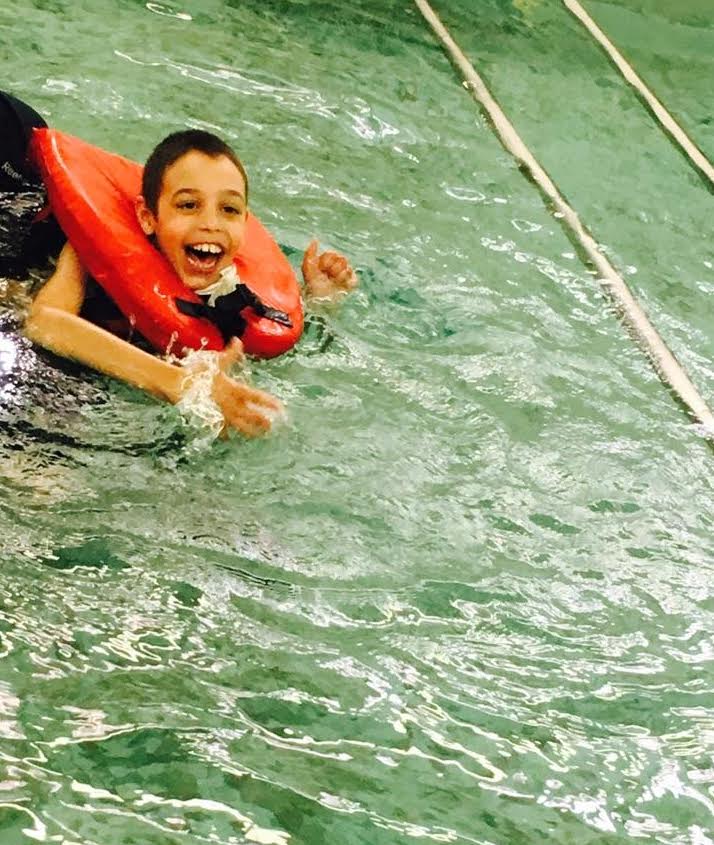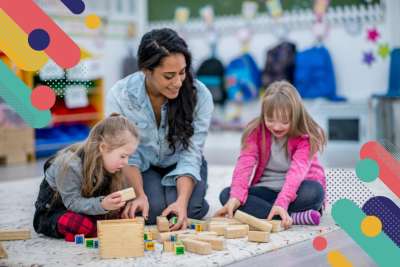
A Simple Question Towards Belonging: What Do You Love?
- Topics : What's New
 Jason Lehmbeck
Jason Lehmbeck
How can we create a more welcoming environment for children with disabilities in our schools and in our work as educators? Jason poignantly suggests that we start with the simple, yet powerful question: What do you love? Drawing on his own experience as a father, he shares how asking questions like this can make all the difference in establishing a sense of belonging.

Meet Jason and Noah
My son Noah can’t talk, but if you look at him, he says everything with his eyes. From the day he was born, almost 11 years ago, he has progressed on his own path, without a typical milestone in sight. In that time he has worked with countless doctors, teachers, therapists, aides and caregivers. Yet all too often, when they are in the room with Noah, they talk to me or to his mother, jumping directly into a discussion about diagnosis, symptoms and limitations. The human being in the room for whom they are ostensibly there to help, is essentially ignored. It pains me to say that over time I settled into the idea that this lack of engagement with Noah was normal.
My Son Is Right Here
One of the worst examples of Noah’s invisibility was, unbelievably, with an expert in non-verbal communication. The expert came to our house to assess Noah’s needs for a particular type of communication device. Upon arrival she said a perfunctory “hello” to Noah, turned to me and then dove into the standard script. I followed right along. He was born with a rare genetic disorder called FOXG1. About 350 people in the world have the same diagnosis. In Noah’s case he is non-verbal and non-ambulatory, and has very limited control of his movements. He has seizures, but infrequently.
As I ran through this clinical recitation of my son’s situation, the expert decided that part of her assessment required a sticker on Noah’s forehead. Without a word, she tried to place one on him. I say “tried,” because beautiful, sweet, non-verbal Noah was telling her loudly with his eyes, “who are you and why are you grabbing my head without asking me?” It was such a presumptuous move onto his body (I mean, would any stranger be allowed to do that to a typically developing 11-year-old? Or to anyone for that matter?), that I stepped in and spoke to Noah about what was needed, while the expert set up an iPad for the assessment.
The first question she asked Noah was “where’s the sheep?” No explanation, no introduction, no nothing. After she repeated the question a few times with no response, I jumped in and said “Noah might not be that into sheep. He does love music, though, so can we try something related to music?” Ignoring me, and with her head firmly focused on her plan, she continued assessing Noah using sheep. After a few more fruitless rounds of the ridiculously irrelevant and impersonal questioning, she left.

Ignored In Plain Sight
Unfortunately, these types of interactions are not unique to my family. I have heard stories like this again and again among our caregiver community in Los Angeles. I have listened to many similarly exasperating stories in conversations with other parents of children with disabilities on my podcast Who Lives Like This?!. One of the most consistent themes on the show is the way in which these children and their families are frustrated by being treated as outcasts or clinical cases on which to work. At first, I could not quite pinpoint what was missing from these infuriating experiences, even though we had been through them ourselves. And yet, the answer was sitting right in front of us.
" While Noah and others like him were physically present in these conversations, little to no attempt was made to truly connect with the person at a human level. They were ignored, even in plain sight."
“What Do You Love, Noah?”
Many years ago, a speech therapist at Noah’s school, named Sara, showed us a better way, one I didn’t realize until years later. She started with a simple question. When she first met Noah she engaged him directly and asked “What do you love, Noah?” Her entire focus was on him--his strengths, and loves. She had read his IEP and had done her homework about his rare diagnosis, but she was engaging with the person in front of her: Noah. Through conversations with us and by watching Noah’s eyes closely she discovered that he not only loves music (teen pop music, unfortunately, like every other child his age) but he is also really into stringy toys, playing catch with his friends, hiking, swimming, popping bubble wrap, and pigs … not SHEEP!
"Sara, along with other therapists and teachers like her, have made a big impact in Noah’s life by simply starting with him. They have found ways to create a full sense of belonging by embracing Noah the person."
On our podcast we heard similar success stories including fully inclusive bar mitzvahs and an IEP meeting where a young adult gets to have a heartfelt conversation about his desire to change his diagnosis.
I See You; I Hear You
The common theme across all of these stories is seeing and embracing others for their humanity.
"The person’s disability is part of that identity. It should not be forgotten and it clearly has to be addressed. But it should not be the entire discussion. Being included physically is different than ensuring a person fully belongs."
What does Noah love? It sounds so obvious in hindsight. Not unlike Kyle Schwartz’s simple but profound idea: "I Wish My Teacher Knew”.
What We Can Do, Together
Over the years I have developed deep empathy for teachers, therapists, and doctors who are doing everything they can to support children like my son Noah.
In the school environment, our teachers, aides and therapists are underfunded and often under-supported. Too much time has to go to paperwork and compliance which takes time away from centering attention on the child. There are many things about the system that needs to change.
In the meantime, I think one helpful step towards creating a more welcoming environment for children with disabilities is to start with a simple question. What does the student love?
How do you create a sense of belonging in your classroom? Share with us on Instagram, Facebook, Twitter, and Pinterest.
Author Bio: Jason Lehmbeck is a technology entrepreneur who recently started a company inspired by his son Noah to help special needs children reach their full potential. Jason and his team are building a digital solution that gives parents of special needs children access to the expertise and information they need to get the best care possible for their child. Jason also has a podcast about the caregiver life with his good friend Elizabeth Aquino called Who Lives Like This?! Jason is also a team member of Nascent Stage Research and Development. Their mission is to radically improve the lives of children with disabilities by combining innovative university research with cutting edge technologies.









